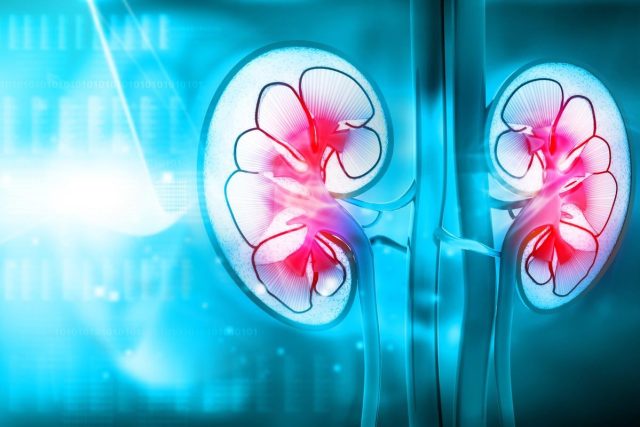Risk increased with worsening CKD stage with denosumab versus bisphosphonates; highest risk seen for dialysis-dependent CKD, CKD-mineral and bone disorder
By Elana Gotkine HealthDay Reporter
TUESDAY, Nov. 19, 2024 (HealthDay News) — For patients with chronic kidney disease (CKD), the risk for emergently treated hypocalcemia with denosumab increases with worsening CKD stage, according to a study published online Nov. 19 in the Annals of Internal Medicine.
Steven T. Bird, Ph.D., Pharm.D., from the U.S. Food and Drug Administration in Silver Spring, Maryland, and colleagues conducted a target trial emulation to examine the risk for emergently treated hypocalcemia with denosumab by stage of CKD and presence of CKD-mineral and bone disorder (MBD) among female patients aged 65 years or older. Participants initiated denosumab (361,453 patients), oral bisphosphonates (829,044 patients), or intravenous bisphosphonates (160,413 patients) for osteoporosis.
The researchers found that with denosumab versus oral bisphosphonates, the risk for emergently treated hypocalcemia increased with worsening CKD stage, with the highest risk seen among dialysis-dependent patients (3.01 versus 0.0 percent) and non-dialysis-dependent patients with CKD stages 4 and 5 (0.57 versus 0.03 percent). Among patients with stages 4 and 5 CKD, denosumab exhibited a higher risk for emergently treated hypocalcemia versus oral bisphosphonates in those with CKD-MBD (1.53 versus 0.02 percent) than in those without CKD-MBD (0.22 versus 0.03 percent). Increased risk was also seen for denosumab versus intravenous bisphosphonates.
“The highest incidence was seen in patients with advanced CKD and those with CKD-MBD,” the authors write. “Diagnosis and management of skeletal fragility in these high-risk patients is complex, requiring careful patient selection, adequate supplementation with calcium and vitamin D, and frequent monitoring of serum calcium under supervision of a clinician with expert knowledge and experience treating CKD-MBD.”
Copyright © 2024 HealthDay. All rights reserved.



















